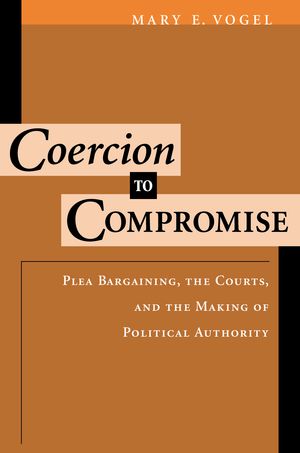
This book examines the origins of the controversial practice of plea bargaining, a procedure that appears to reward the guilty. Contrary to popular perception of plea bargainingas as an innovation or corruption of the post-World War IIars, years, this study shows the practice to have emerged early in the American Republic.
Vogel argues that plea bargaining arose in the 1830's as part of a process of politicalthe stabilization and an effort to legitimate the democratice institutions of self-rule that were crucial to Whig efforts to reconsolidate the political power of Boston's social and economic elite. At this time local political institutions were spare and fragmentary, and the courts, she argues, stepped forward as agents of the state to promote social order.
Plea bargaining drew conflicts into the courts while maintaining elite discretion over sentencing policy. She argues that plea bargaining should be seen as part of a larger repertoire of techniques in the Anglo-American legal tradition through which law might be used as a vehicle of rule. In this context, plea bargaining provided a unique match between the needs of elites to maximize flexibility in criminal sanction and an emerging liberal ideology.